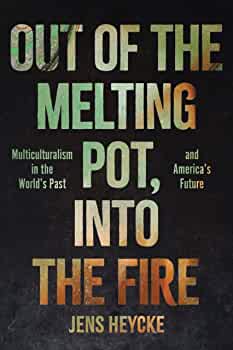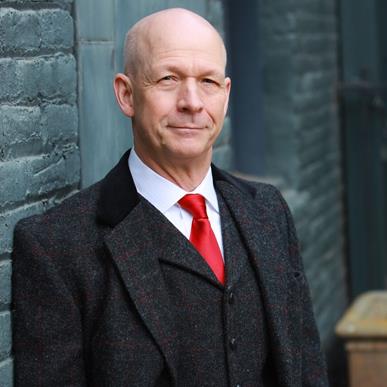Here’s the latest from the crossroads of faith, media & culture: 05/01/23


Hot Topic. With immigration shaping up as a major issue in 2024 political campaigns, the perpetual debate over how best to absorb immigrants is heating up as well. Is it wiser to preserve and promote the “Melting Pot” concept that views America as a place where people can come and transcend the ethnic divides that have for centuries wreaked havoc throughout the world or should we view the country as a sort of a sort of multicultural salad in which we highlight and celebrate the differences between people of diverse of origins? Or is the answer to be found in finding a proper balance that emphasizes the “United” in United States while enjoying and drawing strength from the traditions of every group that make up America?
In
Out of the Melting Pot, Into the Fire: Multiculturalism in the World’s Past and America’s Future (Encounter Books), author
Jens Heycke sifts through the historical data to examine how societies throughout the ages have handled (or mishandled) the issue with an eye toward how a multi-ethnic America can prosper as we move further into the 21st century.
JWK: What led you to write this book?
Jens Heycke: Because of America’s melting pot ideal, when my father immigrated here 70 years ago, he was he was welcomed as an individual, rather than being pigeonholed as the member of some ethnic group. Within two years, he became an American citizen and other citizens regarded him as a fellow American, not as an immigrant. This is a really amazing, tremendous process that is almost uniquely American. For example, people of Turkish descent who have lived in Germany for three generations are still considered Turks rather than Germans.
Beginning in the late 1980s, I saw that wonderful melting pot ideal being abandoned. There was a progressive shift toward treating people as members of groups, rather than as individuals. Instead of focusing on a shared identity for all Americans, there was increasing emphasis on cultural differences and separate group identities. Today, your ethnic background is likely to determine your chances of getting into the college of your choice. It may also determine where you will live when you’re in college and which ethnically-segregated ceremony you will attend when you graduate.
Many other societies in history have taken this approach of siloing people by ethnicity. I believe it is critical to examine how things worked out in those societies before we go further down the same path ourselves. My book is really the first work to do that in a systematic way.
JWK: Are the concepts of America as a melting pot and multiculturalism in conflict?
JH: It depends on how you define “multiculturalism.” For some, multiculturalism means valuing the wonderful cultural contributions that different ethnic groups bring to America. This is often referred to as”soft multiculturalism.” Soft multiculturalism is not only consistent with the melting pot idea, it is essential to it.The other sense of multiculturalism–what some call “hard multiculturalism”–suggests that the government and other institutions should preserve multiple distinct ethnic identities within America. In practice, that means identifying people by group rather than as individuals and abandoning the quest for a unifying shared culture. For example, many universities have residential “theme houses” and other organizations that are segregated by ethnicity. Some institutions also discourage sharing cultures, denouncing it as “cultural appropriation.” This “hard multiculturalism” is the polar opposite of the melting pot ideal: it encourages partitioning groups instead of melting pot integration.
JWK: You’ve written that “If the early promoters of the melting pot believed that immigrants needed to discard anything, it was not their ethnic heritages, but their ethnic prejudices.” Can you elaborate on that?
JH: America’s Founders were keenly aware of the dangers of ethnic and religious factionalism. The 30 Years War, which killed nearly 20% of Europe was not that far in the past. Figures like Hector de Crèvecoeur (writing in 1783) echoed the Founders’ concerns, writing that the “new American” needs to leave “behind him all his ancient prejudices and vendettas.” Israel Zangwill, writer of the 1908 play The Melting Pot, similarly opined that the only way to unite diverse peoples into a cohesive working nation is to abandon prejudices between groups.
JWK: Why has the term “melting pot” fallen out of favor – at least in educational, media, and government circles – while the concept of multiculturalism gained stature?
JH: Academic anthropologists in the second half of the 20th century kick-started multiculturalism with the theory of “cultural relativism,” which states there are no absolutes among cultures. Cultural relativism assails the basis of the melting pot, which relies on taking the “best” from multiple cultures. According to cultural relativism, there is no “best”– everything is relative. That thinking seeped from academia into the rest of society in the 1980s and 1990s.
Also, politicians and other elites have long known that separating people into groups and then pandering to group differences and antagonisms enhances their own power and prestige. Multiculturalism fits right into that, so politicians have a big incentive to promote it.
JWK: How has intermarriage between different ethnic groups affected the way Americans view these issues?
JH: Intermarriage is one of the most effective ways to unite different groups and diminish group differences. When your own relatives have different origins, it’s easier to envision your country as a unified whole that unites people with different origins.
JWK: How has the debate of assimilation versus the accentuating of differences played out historically in other societies – and what can we learn from those past experiences?
JH: You’ll have to read my book to get the full, extended answer to that. But, briefly put, there are many examples of countries that got along very well right up until the point where they started distinguishing between groups and encouraging separation among them. For example, Hutus and Tutsis in Rwanda never had any systematic group conflict until Belgian colonialists came in and formalized a group distinction with racial identity cards and employment preferences. Accentuating group differences that way opened a divide that led to group antagonism, and eventually to genocide.
By contrast there are also societies going far back in history that worked very well because they assimilated and integrated diverse groups. Ancient Rome, for example, had an amazing practice of assimilating a vast array–Gauls, Pannonians, Britons, Black Africans, and so on–as Roman citizens. These non-Italians constituted the majority of Rome’s legions and were willing to sacrifice their lives for Rome. Many, including African Blacks, rose to the highest offices in the Roman Empire. This gave Rome fantastic resiliency and strength. Like other societies of the time, Romans did a lot of terrible things–persecution of Christians, slavery, and so on–but they got that one thing (assimilation) very right and were wildly successful because of it.
JWK: Would you say that it’s important to find a balance between the two extremes?
JH: I would not say there are two extremes. There is the melting pot ideal, which has been the prevailing model for integrating Americans for most of history and there is multiculturalism, which is a fairly recent and extreme aberration. Since the story of the tower Babel, it has been a truism that dividing a society into groups weakens it. There has been a lot of history since then that confirms that.
JWK: Don’t we need some kind of balance in today’s fractured culture?
JH: The terrible history of Rwanda, Yugoslavia, Sri Lanka, and many other countries underscores how terribly ethnic division can turn out. Rather than seek some sort of “balance,” we need to wake up to that reality and focus on what we all share and on unifying diverse groups into a cohesive nation.
JWK: Anything you’d like to add as we wrap up?
JH: The most notable failure in America’s melting pot model has been with Black Americans. Even looking far past the end of slavery and
Jim Crow, Blacks have been horribly mistreated. But the failure has not been with the melting pot itself, but in excluding Blacks from it. So the answer is not to throw the melting pot out, but to make sure that it’s more inclusive. We can start by acknowledging that Black American heritage is an essential and core component of out American identity.
John W. Kennedy is a writer, producer and media development consultant specializing in television and movie projects that uphold positive timeless values, including trust in God.
Encourage one another and build each other up – 1 Thessalonians 5:11



